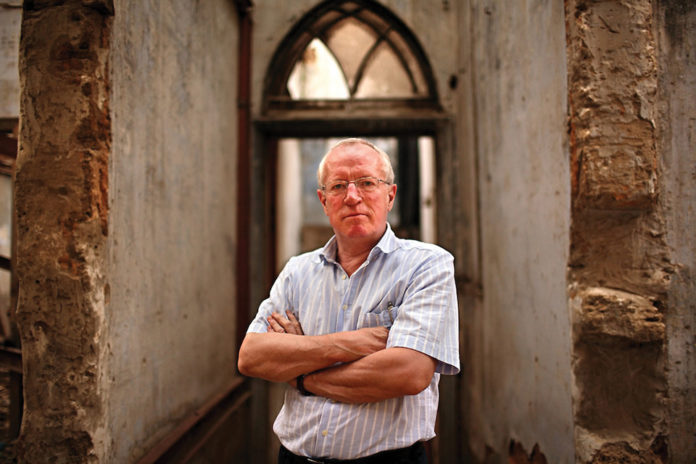By Robert Fisk
Well, we can all agree that the sea took 70 percent of the blast!” a close Lebanese friend announced to me this week, with intriguing if doubtful science. I had asked him — because I knew the answer — which of Lebanon’s religious communities had suffered most grievously from the explosion that changed the nation. Or did not change the nation, as the case may be.
Like everything in Lebanon, his calculation may have been right. Because Beirut, like Tripoli — and Haifa, for that matter — is built on one of those ancient east Mediterranean promontories, like “the face of an old fisherman” as Fairouz memorably called her capital city. The great clap of sound may have embraced more salt water than buildings. And the fish, so far as we know, are not religious.
But my acquaintance — a Sunni Muslim, a civil servant of many years, a reader of books rather than memos — was quick to caution me. “Let’s not see this in civil war terms. But yes, the Christians were hit worse because they live next to the port in the east of the city, the Maronites mostly. The Muslims side of Beirut lost its windows, the Christians lost their lives.” But even that wasn’t quite true.
Those who said that the dead contained Lebanese of every faith were also correct. There were Muslims — Sunni and Shia among the firefighters, shopkeepers and others — not to forget the dozens of Syrian refugees who may be a quarter of all the fatalities. In fact, the Syrians somehow got included in the death toll for Lebanon. But there was something slightly odd about the way this tragedy was retold in the west.
In France, in Britain and America — and, I noticed, in Russia, too — the narrative (a word I hate) was a little different. The “Lebanese”, so we were told, were now protesting against the “elites” and the government — which had corrupted the country, bankrupted its economy, failed to protect its people — and now demanded a new system of politics, democratic, non-sectarian, uncorrupted, etc. True again.










